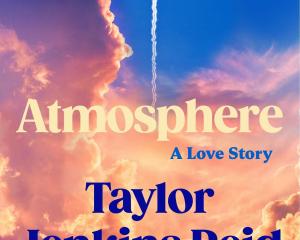Eimear McBride's second novel provides another glimpse outside the blandness of the literary mainstream, writes Cushla McKinney.
THE LESSER BOHEMIANS
Eimear McBride
Text Publishing
By CUSHLA McKINNEY
For 18-year-old Eily, the narrator of The Lesser Bohemians, acceptance into a prestigious London drama school will allow her to transform herself from young Irish virgin to cosmopolitan woman of experience, and ''make myself of life here for life is this place and would be start of mine''.

It is a project she embarks on with alacrity, throwing herself into intra- and extra-curricular student activities with equal vigour. Life is a whirlwind of school, pubs, parties and other such rites of passage that eventually see her thrown out of her bedsit and sharing a squalid squat with a fellow student, his Czech wife and the wife's equally Czech boyfriend.
But it is the turbulent affair with Stephen - an actor old enough to be her father - that dominates her life and forms the core of the novel. It is a relationship that seems doomed to failure, not just because of the age difference but also because both have survived childhood abuse that, for Stephen in particular, manifests as self-destructiveness. But unlike McBride's previous novel, A Girl is a Half-Formed Thing, this is a story not of fall and fall, but fall and survival; if they can risk trusting in each other and in themselves, they have an opportunity finally to leave the past behind.
Although I was initially uncomfortable with both the novel's subject matter and form (most events are presented as fragmentary, first person stream-of-consciousness), McBride has managed a brilliant balancing act. Eily's voice isn't convincing 18, but the mixture of sensory impressions and inner commentary successfully captures the inchoate nature of thought while remaining comprehensible. Indeed I found myself so lost in her head that an interlude of ''normal'' storytelling jarringly highlighted how unrealistically smooth most conventional dialogue actually is.
Another unexpected advantage of using a style in which so much is left in the spaces between words is that while the physical aspects of their relationship are as important as the emotional, these are generally described as fleeting impressions rather than the cringe-making metaphors that accompany many descriptions of sex (the corollary being that what is described explicitly is important).
Details of abuse are handled with similar care; present only insofar as they form a necessary part of the story rather than gratuitous detail, although a degree of reader's discretion is probably advisable.
Eily's acting classes may take a back seat to the main drama in her life, but the fact she is required to mine personal experiences and present these to her colleagues also plays a pivotal role in the story. This, in conjunction with the story's challenging themes and structure reminded me strongly of The Rehearsal, and I was not surprised to see Eleanor Catton's name in the list of endorsements.
The Lesser Bohemians is not going to appeal to all readers, but if you want something a little outside the blandness of the literary mainstream - or enjoyed either authors' earlier novels - it is well worth a try.
Cushla McKinney is a Dunedin scientist.
Comments
Art is only complete when received by the viewer/reader/consumer. At the risk of seeming elitist, readers who perceive meaning in 'the spaces between words', are, in effect, deconstructing symbology. It is the same with Silence, which is not nothingness. It is just the absence of Sound.












